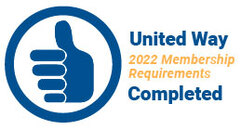|
This column has discussed the Quick Response Team in previous columns. This time we will discuss what happens when you call them.
Anyone can call the QRT at 765-490-0381. You can call for yourself, or to refer a friend or family member. Your call will be answered by a certified recovery specialist. A CRS is a person in long-term recovery from substance use or a mental health issue who has received forty hours of training and passed a certification exam. You will be asked for your name (or the name of the person you are referring), age, and a brief description of the situation. They will also ask you for contact information (phone, address or if the person is homeless, where they tend to hang out). They will explain that they are a person in long-term recovery and have been where you are. They will ask where you are in your recovery process and what you need to continue in your recovery today. The first step in the QRT contact is to do some basic assessments to learn your history and determine the nature and severity of your problem. They will ask you to describe what your life would look like without substance use or mental health issues. They will encourage you to imagine what recovery might look like for you. What are your ultimate goals? For a person beginning recovery, achieving a long-term goal may seem impossible and the obstacles insurmountable. Based on your vision and goals, they will help you prioritize what you would like to work on first. They break it down into manageable steps that you can accomplish. The next step is to identify the services and agencies that would help you achieve your vision. The CRS is an expert in services and support available in the community and will help you access them. If your goal is to find a job, they help you locate possible employers, obtain applications and fill them out. If you are ready to enter detox, they help you obtain insurance, find a treatment center, and transport you to the facility, often that same day. After the initial contact, the CRS will continue to meet with you to work towards your plan for recovery. The frequency of your meetings will depend on your need. The CRS will not do the work for you, but will help you connect to the services you need and assist you in determining how to progress toward your goals. They act as connectors, encouragers and facilitators. Sometimes people are leaving treatment and transitioning into their next step in recovery. They may need help finding housing or finding a support group. The CRS has resources related to all these needs and can connect you to these services. Here are some examples of how the QRT has helped people in White County. One CRS helped a family with substance use and mental health issues who had a house fire. They assisted the family in obtaining clothes and even helped them find a temporary place to stay. In another instance, a CRS helped a client work with the BMV to get a driver’s license re-instated and to set up insurance. When not meeting with contacts, a CRS may distribute Narcan to convenience stores, liquor stores, and bars. They prepare, pack, and pass out toiletry bags to people moving to a treatment centers or transitional housing. To be prepared to connect clients to food pantries, assistance with utility bills, and setting up appointments for services, they research available programs and make important connections weekly. As impressive as the QRT is, there are things they cannot help you with. They cannot help you avoid jail time or help with court appearances. They also cannot get you a car or do things that you can do for yourself. Their purpose is to walk alongside you to rebuild your life to live a balanced, healthy, productive life. The QRT is there as long as you need them. Even after you are established in recovery and doing well, they will continue to check in with you. They emphasize that you are always welcome to call back if you need help in the future.
0 Comments
Your comment will be posted after it is approved.
Leave a Reply. |
AuthorLynn Saylor is the AmeriCorps member working with the United Against Opioid Abuse Initiative alongside the White County United Way. She is a major facilitator of the United Council on Opioids serving White County and a regular contributor to local media. Archives
October 2020
Categories
All
|

 RSS Feed
RSS Feed
